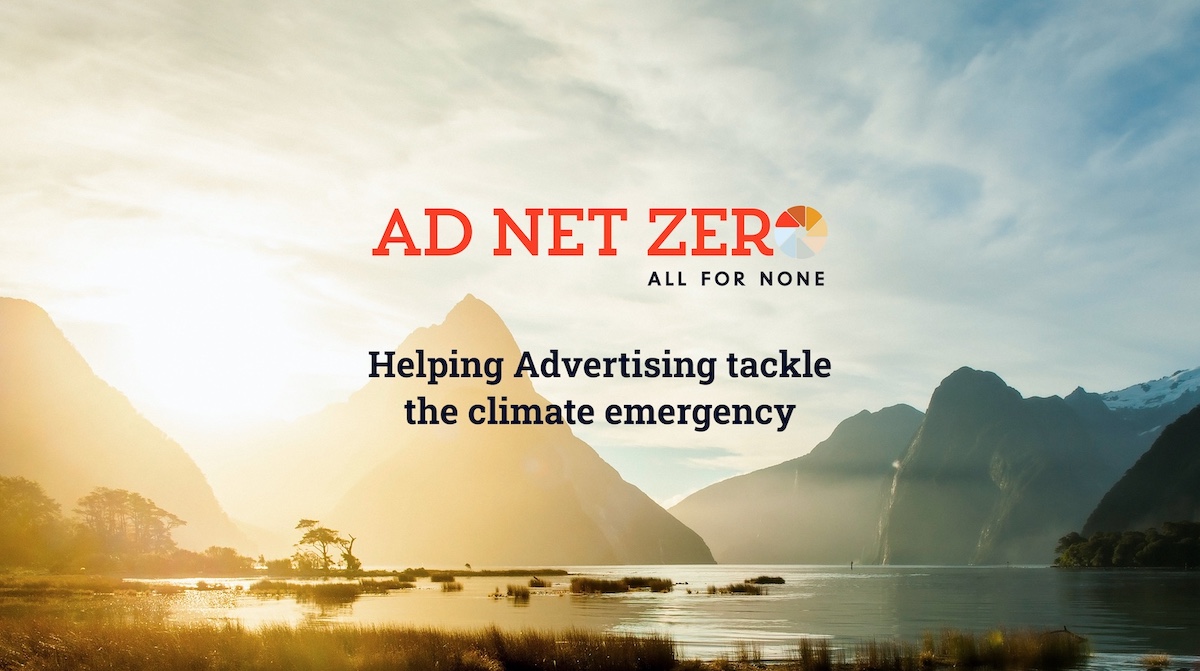Matt Halliday: The NZ ad industry wants to clean up its climate act – but will agencies drop their fossil fuel clients?

By Matthew Halliday, Lecturer, Advertising & Brand Creativity, Auckland University of Technology.
At the launch of the Auckland Climate Festival last month, Green Party Auckland Central MP Chlöe Swarbrick spoke about how building a community is the best way to avoid being overwhelmed by the scale of the climate emergency.
Advertising might not have been the first thing on Swarbrick’s mind. But earlier in August, New Zealand’s Commercial Communications Council had announced its own community initiative to address emissions within the advertising sector.

Labelled Ad Net Zero, it’s part of an international framework launched in the UK late in 2020. “Our ambition,” it states, “is to reduce the carbon impact of developing, producing and running advertising.”
To support the industry reducing its own emissions, Ad Net Zero is built around a five-point “action plan”, the first four points of which are to reduce emissions in different areas of the business.
But it’s the fifth point that will show whether the agencies that have signed up really mean to change: “harness advertising’s power to support consumer behaviour change”.
One would assume that includes moving consumers away from fossil fuel consumption. However, right now, this seems unlikely. Every New Zealand agency that represents a large fuel company has signed up to Ad Net Zero, and they are still creating ads for their petrol station clients.
Risk of greenwashing
Every time I jumped in my car this weekend (it’s electric before you accuse me of hypocrisy) I heard an ad for a fuel company and how many cents I could save per litre. Is this not where advertising might make the biggest difference?
Internationally, agency leaders are on the record about sustainability and how the industry is leading the way in reducing emissions. Considerably less attention is paid to the environmental impacts of the work they do for their client roster.
The risk here is that the advertising industry itself will be perceived to be indulging in the same “greenwashing” that so many consumer products and services are already accused of practising.
But the issue goes beyond just the industry. Despite having declared a climate emergency, the New Zealand government still allows the consumer incentives driven by fuel discounts. Brand extensions such as AA Smartfuel, Mobil Smiles and Z Energy Pumped all thrive off relatively cheap in-store and radio advertising targeting consumers in their cars.
Fossil fuel ad bans
There are already international precedents for ending these kinds of campaigns. In France, for example, any company promoting fossil fuel products can now be fined up to €100,000.
Greenpeace has argued the French law doesn’t go far enough. But it still provides a stark contrast with New Zealand – which continues to trade on its “100% Pure” image while allowing incentives for fuel purchases.
Two Dutch cities have taken the advertising ban even further. Amsterdam’s metro system banned the advertising of fossil-fuelled transport, including flights and non-electric cars, in 2021.
And next year Haarlem will prohibit these types of ads and all holiday flight advertising in public places. The city has also become the first in the world to ban ads for meat due to its consumption contributing to the climate crisis. (One can hear the Groundswell tractors revving at the mere thought of this happening in Aotearoa.)
Dropping fossil fuel clients would undoubtedly affect agency income and jobs. But it is also advertising’s job to find creative solutions to clients’ problems. Maybe such a move would present new opportunities for the New Zealand industry.
Climate-conscious creatives
Brands and their advertising amplify and help accelerate movements in global culture. The question now is, can advertising’s storytellers truly accelerate our emissions reduction?
Ad Net Zero is a good start. But a commitment to dropping high-emission clients is more challenging. This is where overseas initiatives such as Comms Declare and Clean Creatives come in.
These organisations, both established in 2020, aim to help individuals, agencies and clients within the industry divest themselves of fossil fuels by refusing to take on new fossil fuel contracts or work with agencies that still have them on the books.
Creatives for Climate, established by a young New Zealander in Amsterdam around the same time, shares these aims and is launching a New Zealand chapter at the Auckland Climate Festival later this month. The movement of climate-conscious creatives is here and it’s growing.
In the long term, Ad Net Zero will need to prove it stands for true change if it’s to avoid accusations of being a greenwashing campaign itself.

8 Comments
It’s like the Greens Party meets adland and is awash with well-meaning, but unrealistic juniors with pink hair.
As for the ‘100%’ angle – that’s been argued to death for over two decades. I’d use an amazing tool called Google to find out more.
shut up
If you stand for something, you will always find some people for you and some against you. If you stand for nothing, you will find nobody against you, and nobody for you.
Such a puerile response @old white man who is probably 2 years away from retiring says
Ever driven in one?
Caught an uber? A ferry? A bus?
The reality is that until the demand dissapears neither will they.
I’d rather see us work with them as they can help shift markets faster than we could if we banish them into the wilderness.
This thinking is why we have such polarities in our politics. It gets us nowhere but divided.
Sure have to all of the above, but your argument doesn’t fly. Isn’t advertising supposed to drive demand? Me must stop incentivising fossil fuels
Advertising can drive demand.
It can also change perceptions.
Or it mostly just gets ignored – about 90% of it does.
You yourself can also reduce demand by not using any of the means of transport I mentioned. I’ll add flying in here too.
Changed anything recently? Or just standing on a box telling others to do so?
You are talking about wholesale change on all levels. It makes no sense to not include the existing industry in this change as they are a large part of what needs to change. At approximately 48 Billion dollars profit a day, it’s a significant industry that you are choosing to thumb your nose at.
Further to this, if you make them an enemy it makes the job twice as hard as it already is.
Your point is valid but unfortunately it doesn’t lead to the result that you hope for.
Bring people with you – don’t pick fights.
It’s tricky, for sure.
We stopped advertising cigarettes, as we should have.
There are more and more calls to ban advertising alcohol, with good reason.
Meat. Fossil fuels. The vehicles that use them. The planes and ships we travel on.
How about junk food, fast food, fast fashion?
Anything packaged in plastic?
Now, I’m a green voter. I really do give a shit.
But I’d also, selfishly, be quite keen to keep making ads about things.
(I don’t know the answer, sorry.)